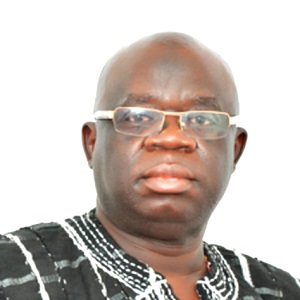
Re-examine policies on natural resource extraction - Expert
A natural resources governance expert, Dr Abdulai Darimani, has called for a re-examination of the policy regime that defines the extraction of natural resources in Africa.
He said that re-examination would bring the region to a point where reformulating policies would not just be a recognition of the fact that resources existed and had to be extracted by foreign direct investment (FDI), but a recognition that countries and the continent generally had the potential.
Advertisement
“If the policy says that the resource exists and has to be exploited, nothing prevents us from developing local entrepreneurs to take front stage in the extraction of those resources. Countries which have emerged from the current process of globalisation have fashioned their policies in such a way that they can benefit from the globalisation process, and not just sitting on the process to drive away our benefits,” he said at the opening of a four-day conference by Oilwatch Africa in Accra.
The event also served as the annual general meeting (AGM) of Oilwatch, a grassroots civil society organisation that works with local communities to resist detrimental environmental and social effects of oil and gas activities.
It was dubbed: “Gassing the Continent, Pipelines of Discontent”, and focused on strategies for citizens’ movement building and resistance mapping.
Resource exploitation
Dr Darimani said a look at the pattern of resource exploitation on the continent of Africa showed that the major beneficiaries continued to be multi-national companies, which somehow sought to exclude the people who sit with the natural resources, as well as the host government.
That situation, he said, was a result of three interrelated factors; namely individual countries have rich deposits and potential must be exploited; FDI qualified to extract those resources; and if the resource was there and foreign interests were exploiting, African government and citizens would also necessarily benefit — employment and sharing of revenue.
However, he said, analysis showed that the share of individual African countries from the increased extraction of resources was marginal, likewise the related employment.
“We have come to a point where we are in a global village, but it doesn’t mean we should give away everything. Fiscal regime for our extractives has not been the best. Tax moratorium is good because tax is not just meant for revenue collection, but it is also an instrument for regulating investments,” he said.
Energy transition
The conference/AGM provided a convergence for members and allies from South Sudan, Uganda, Kenya, DRC, South Africa and Ghana to define purpose and action on fossil energy civilisation for Africa.
In a welcome address, the representative for Oilwatch Ghana, Noble Wadzah, said the search for appropriate energy development for the continent and its implications for climate change should be the basis for the debate on energy transition.
He said in the midst of the climate change debate, Africa was busy laying gas pipelines.
A member of the steering committee of Oilwatch International, Nnimomo Bassey, said the rate at which natural gas was exploited on the continent did not match with the level of investment that came in for the purpose of exploiting those resources, especially gas for export.
He said the world needed to keep fossil fuels in the ground as a way to force the transition to renewable energy.
“That is what the future holds. We don’t want Africa to come behind the whole world and be struggling with dirty energy when the world has moved,” he said.



